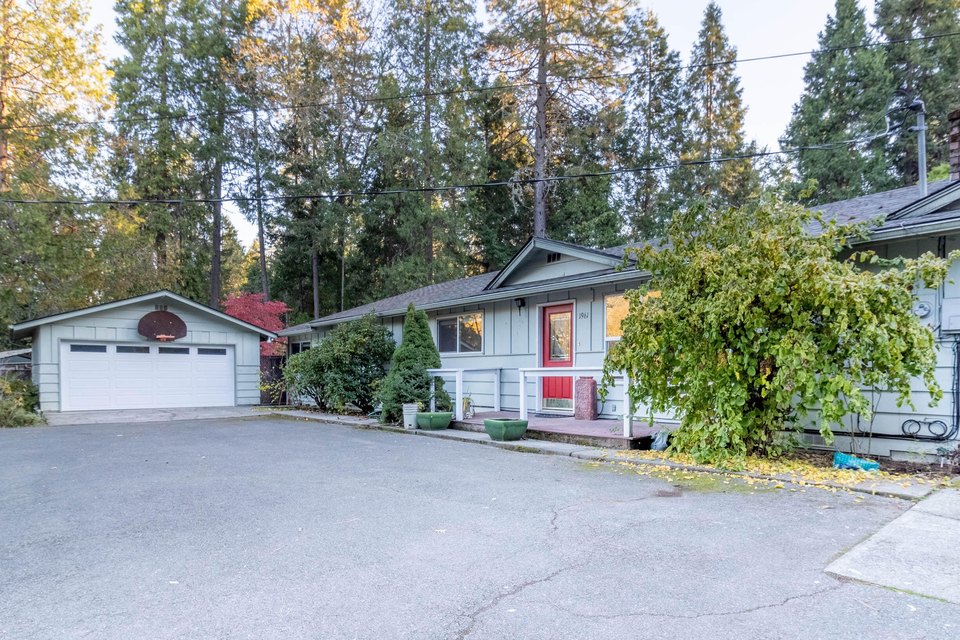
Closing day is a final step to your home purchase journey. The closing day marks the end to negotiations, the completion and inspection of your new house, but most importantly it is when you become the legal owners of your home.
The day of closing can be an exciting and nerve-wracking time for buyers. Closing involves not only a lot paperwork but also the final execution of all agreements made between the buyer and seller for the purchase of the property and the financing.
What you need to know about closing day
You will be responsible for reviewing and signing various legal documents detailing the terms of sale on the closing day. These documents mostly relate to your mortgage but you'll also need to know some important information before signing.

After you have signed the closing papers, what happens?
Once you sign the closing documents, your lender must record an official document known as "titles" or "deeds" that transfers legal ownership of property to you. This process can take a couple of hours but it's worth it because it ensures that you own your property outright.
You'll also be required to sign the mortgage form, which details the amount you owe, the rate of interest you pay, and other important information regarding the home loan. This document is a crucial part of the closing process because it highlights your rights and responsibilities as a borrower.
When you sign a mortgage, you are agreeing to pay back the loan in full and to make all required payments on time. If you default on the mortgage, you risk losing your house.
You may have had a change in your financial situation since you applied for a mortgage. Your lender will check to make sure you are still eligible for the loan. The lender provides you with a "closing declaration" or "mortgage disclosure" for you to review and then sign. You should ask your mortgage broker or realtor if there are any questions regarding your financial situation.

Your lender could also require you sign other mortgage documents. This may include an affidavit stating that you are truthful or a declaration that all necessary repairs were made before closing.
The type of closing document you will need to sign depends on the home that you're purchasing. Some lenders may require you to sign an "affidavit of mortgage" stating that you've received an appraisal for the property and that you don't have any outstanding mortgages.
Affidavits are a crucial step in the home buying process, because they make clear that all information you have provided is true and accurate. They also confirm that you have made all required repairs to the home before closing and that the home is in good condition and able to be sold for its full value.
FAQ
What should I look for when choosing a mortgage broker
A mortgage broker helps people who don't qualify for traditional mortgages. They search through lenders to find the right deal for their clients. There are some brokers that charge a fee to provide this service. Some brokers offer services for free.
What's the time frame to get a loan approved?
It depends on many factors like credit score, income, type of loan, etc. Generally speaking, it takes around 30 days to get a mortgage approved.
Should I use a mortgage broker?
A mortgage broker is a good choice if you're looking for a low rate. Brokers are able to work with multiple lenders and help you negotiate the best rate. Brokers may receive commissions from lenders. Before you sign up, be sure to review all fees associated.
Is it better to buy or rent?
Renting is generally cheaper than buying a home. It's important to remember that you will need to cover additional costs such as utilities, repairs, maintenance, and insurance. You also have the advantage of owning a home. You will be able to have greater control over your life.
Do I need to rent or buy a condo?
Renting may be a better option if you only plan to stay in your condo a few months. Renting saves you money on maintenance fees and other monthly costs. The condo you buy gives you the right to use the unit. The space is yours to use as you please.
Can I buy a house in my own money?
Yes! There are many programs that can help people who don’t have a lot of money to purchase a property. These programs include FHA loans, VA loans. USDA loans and conventional mortgages. You can find more information on our website.
What is the average time it takes to sell my house?
It depends on many factors including the condition and number of homes similar to yours that are currently for sale, the overall demand in your local area for homes, the housing market conditions, the local housing market, and others. It may take up to 7 days, 90 days or more depending upon these factors.
Statistics
- The FHA sets its desirable debt-to-income ratio at 43%. (fortunebuilders.com)
- This means that all of your housing-related expenses each month do not exceed 43% of your monthly income. (fortunebuilders.com)
- Over the past year, mortgage rates have hovered between 3.9 and 4.5 percent—a less significant increase. (fortunebuilders.com)
- It's possible to get approved for an FHA loan with a credit score as low as 580 and a down payment of 3.5% or a credit score as low as 500 and a 10% down payment.5 Specialty mortgage loans are loans that don't fit into the conventional or FHA loan categories. (investopedia.com)
- When it came to buying a home in 2015, experts predicted that mortgage rates would surpass five percent, yet interest rates remained below four percent. (fortunebuilders.com)
External Links
How To
How to locate an apartment
When moving to a new area, the first step is finding an apartment. This takes planning and research. This involves researching and planning for the best neighborhood. Although there are many ways to do it, some are easier than others. Before renting an apartment, you should consider the following steps.
-
It is possible to gather data offline and online when researching neighborhoods. Online resources include Yelp and Zillow as well as Trulia and Realtor.com. Online sources include local newspapers and real estate agents as well as landlords and friends.
-
You can read reviews about the neighborhood you'd like to live. Yelp. TripAdvisor. Amazon.com all have detailed reviews on houses and apartments. You may also read local newspaper articles and check out your local library.
-
You can make phone calls to obtain more information and speak to residents who have lived there. Ask them what they loved and disliked about the area. Also, ask if anyone has any recommendations for good places to live.
-
Take into account the rent prices in areas you are interested in. Consider renting somewhere that is less expensive if food is your main concern. If you are looking to spend a lot on entertainment, then consider moving to a more expensive area.
-
Learn more about the apartment community you are interested in. It's size, for example. What price is it? Is it pet-friendly What amenities are there? Can you park near it or do you need to have parking? Are there any rules for tenants?